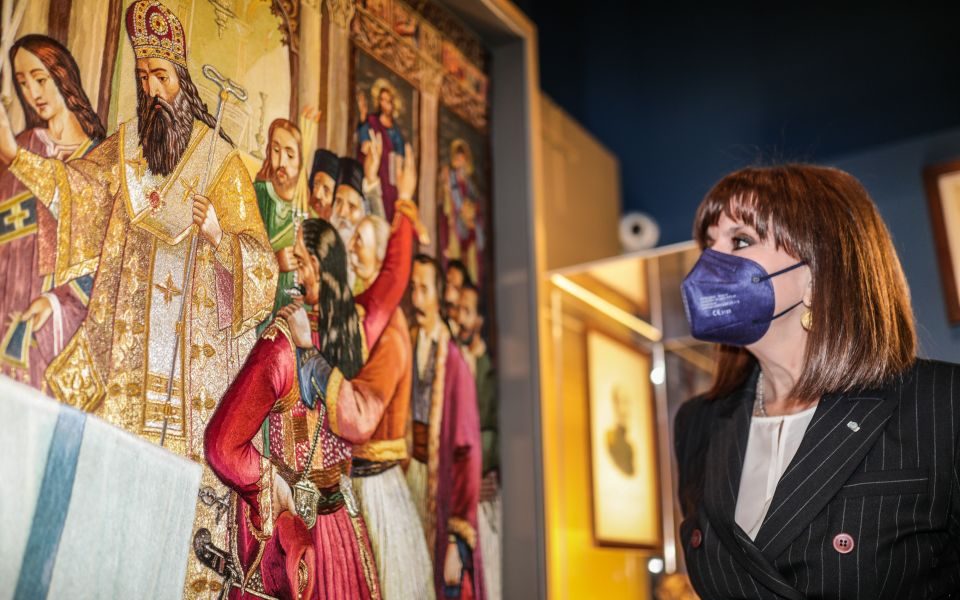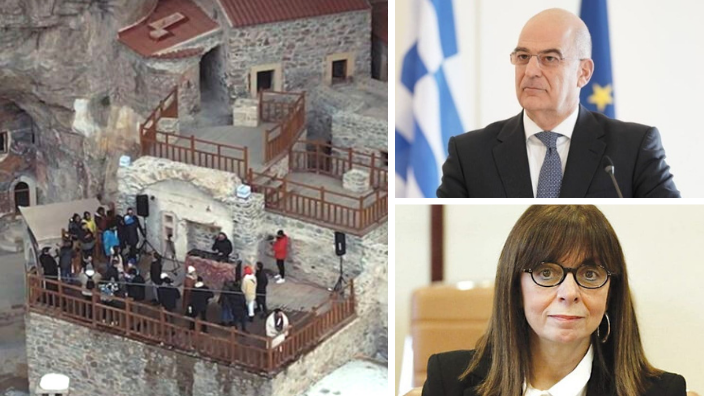Greece’s Foreign Ministry and President, Katerina Sakellaropoulou, have said that images showing a band dancing to electronic music at the Panagia Soumela monastery in Turkey were “a desecration” of the monument.
The ministry called on Turkish authorities “to do their utmost to prevent such acts from being repeated” and to respect the site, a candidate for UNESCO’s list of world heritage sites.
Sakellaropoulou also expressed her shock at the incident on Tuesday during the opening night of an exhibition at the Byzantine and Christian Museum of Athens.

One of the icons on display at the exhibition was that of Panagia Soumela and Sakellaropoulou said she needed to single it out due to the “the recent desecration of this World Heritage Site.”
The Panagia Soumela icon is one “that Hellenism, especially Pontic Hellenism, considers an integral part of its identity, as it depicts the Mother of God, their guide and protector in the painful experience of uprooting and refugeedom,” the President added.
These statements come after the Ecumenical Patriarch Bartholomew also sent a complaint to Turkey’s Culture and Tourism Minister, Mehmet Nuri Ersoy, where he described the performance as “an insult to the monument.”
Turkish officials were not immediately available for comment.
Founded in the 4th century, Soumela is a monastic complex built into a sheer cliff above the Black Sea forest in eastern Turkey. It was long ago stripped of its official Orthodox Christian status and now operates as a museum administered by the Culture Ministry in Turkey.
Source: Ekathimerini.

